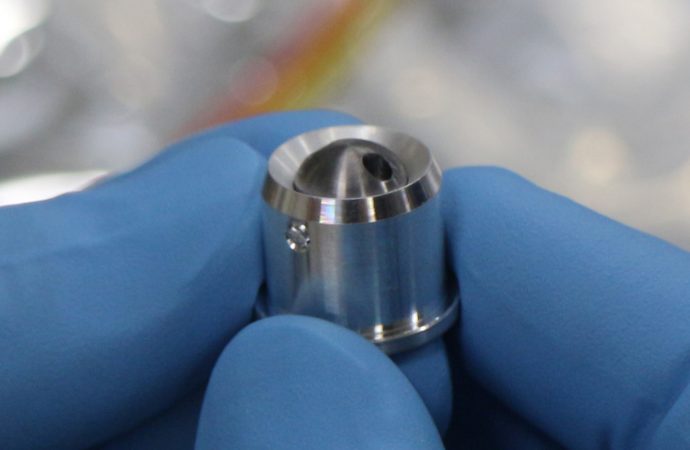Say you need to prepare to shoot bullets into an asteroid and suck up the debris kicked up from the blast, then tuck it away for safekeeping. There’s no better way than to shoot bullets into a fake asteroid here on Earth and watch what happens in slow motion.
So, that’s precisely what the Japan Aerospace Exploration Agency (JAXA) did at the end of December in preparation for its spacecraft Hayabusa2’s sampling run at the asteroid Ryugu later this week. Using the data gathered over months spent surveying the space rock, they created a model of the asteroid, put it in a vacuum chamber and used a copy of the spacecraft’s sampling system in a test run.
The trial tackled two main concerns. The team wanted to be sure that the instrument copy still worked after sitting in storage since about the time the spacecraft launched, in December 2014. The test run also addressed a discovery Hayabusa2 made: On close inspection, the probe saw that Ryugu’s surface was covered in gravel, rather than the fine dust that JAXA had expected when the mission was designed.
In order to address these concerns, the JAXA team designed a replica experiment using a flight-spare sampling instrument, which is an exact copy of the instrument on the spacecraft. Scientists mimicked the gravelly structure of Ryugu and the chemical composition of the class of meteorites they believe originate in similar asteroids. The researchers put the entire apparatus into a vacuum chamber to better mimic conditions at the asteroid (although they still had to work within Earth’s gravity).
The Hayabusa2 team was pleased with the results of the trial; they were able to confirm that the bullet mechanism did indeed create samples that the spacecraft could collect. In fact, although the test run on gravel produced a smaller crater than a test run on dust had done, the sampler was able to collect more material. And the team said it expects that without gravity’s interference, the real Hayabusa2 mechanism will fare even better.
With the dress rehearsal a success, all that’s left to do is wait for the real thing. JAXA has scheduled the maneuver for 6 p.m. EST on Feb. 21 (2300 GMT; 8 a.m. local time on Feb. 22 for mission control staff).
Source: Space.com

































Leave a Comment
You must be logged in to post a comment.